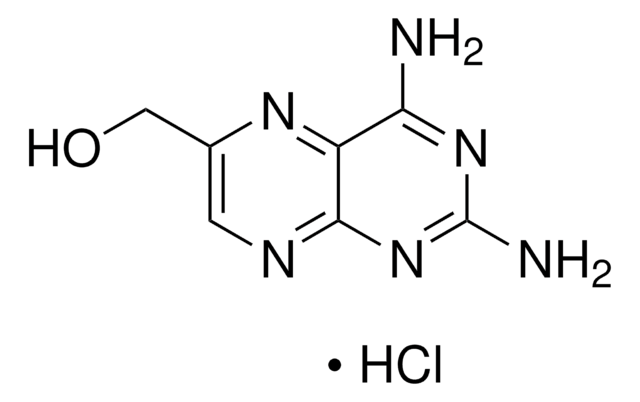577928
Lithium bis(trimethylsilyl)amide solution
1 M in toluene
Synonym(s):
LiHMDS, Hexamethyldisilazane lithium salt
About This Item
Recommended Products
concentration
1 M in toluene
density
0.860 g/mL at 25 °C
SMILES string
[Li]N([Si](C)(C)C)[Si](C)(C)C
InChI
1S/C6H18NSi2.Li/c1-8(2,3)7-9(4,5)6;/h1-6H3;/q-1;+1
InChI key
YNESATAKKCNGOF-UHFFFAOYSA-N
Looking for similar products? Visit Product Comparison Guide
General description
Application
- In the deprotonation and nucleophilic difluoromethylation reactions.
- To synthesize isoquinoline derivatives by the addition of N-iodosuccinimide (NIS) to the α-benzyl tosylmethyl isocyanides.
- To prepare arylboronic acid pinacol esters by the reaction of aryl fluorides with bis(pinacolato)diboron via palladium-catalyzed cross-coupling reaction.
Signal Word
Danger
Hazard Statements
Precautionary Statements
Hazard Classifications
Aquatic Chronic 3 - Asp. Tox. 1 - Eye Dam. 1 - Flam. Liq. 2 - Repr. 2 - Self-heat. 1 - Skin Corr. 1B - STOT RE 2 - STOT SE 3
Target Organs
Central nervous system
Supplementary Hazards
Storage Class Code
4.2 - Pyrophoric and self-heating hazardous materials
WGK
WGK 3
Flash Point(F)
48.0 °F - closed cup
Flash Point(C)
8.9 °C - closed cup
Personal Protective Equipment
Certificates of Analysis (COA)
Search for Certificates of Analysis (COA) by entering the products Lot/Batch Number. Lot and Batch Numbers can be found on a product’s label following the words ‘Lot’ or ‘Batch’.
Already Own This Product?
Find documentation for the products that you have recently purchased in the Document Library.
Customers Also Viewed
Our team of scientists has experience in all areas of research including Life Science, Material Science, Chemical Synthesis, Chromatography, Analytical and many others.
Contact Technical Service











